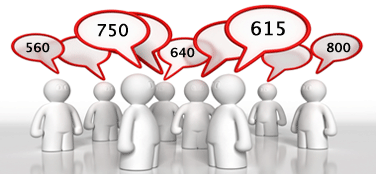

- Credit 101
- Teaching Tools
- Scores
- Life Stages
- Credit Mishaps
- Understanding Different Bankruptcy Chapters
- Your Credit Report After a Bankruptcy
- Understanding Judgments
- Inaccuracies on Your Credit Report
- Disputing Credit Report Errors
- Understanding Foreclosure
- The Foreclosure Process & What To Do Afterwards
- Understanding Identity Theft
- In the event of: The Death of a Spouse
- Rebuilding Your Credit
- Choosing a Reputable Credit Counselor
- Avoid the Downside of Credit Mismanagement
- What is a Credit Freeze
- Worksheets & Letters
- 6 Steps to Creating a Budget
- Household Budget: Wants vs Needs
- Personal Budget Template
- Understanding Amortization Schedules
- Loan Amortization Calculator
- Sample Opt-Out Letter
- Sample Dispute Letter
- Annual Credit Report Request Form
- Auto Loan Payment Calculator
- Back-to-School Budgeting
- Cost of Credit
- Emergency Fund
- How Much Car Can You Afford
- How Much House Can You Afford
- How Much Will College Cost
- How Much Will My Loan Cost
- How Will My Savings Grow
- Mortgage Payment
- Mortgage Refinancing
- Pay Down Debt or Invest
- Repaying Student Loans
- Retirement Fund
- Rework Your Budget
- Saving for a Goal
- Should I Consolidate My Debt
- Travel Budgeting
- Your Holiday Budget
- Buying a House
- 5 Steps to Buying a Home
- 5 C's of credit When Applying for a Loan
- What Score is Needed to Purchase a Home
- Using a Realtor
- Understanding Fixed Rate Mortgages
- Understanding FHA Loans
- Understanding VA Loans
- Understanding Interest Only Loans
- Understanding ARM Loans
- Understanding Combo Loans
- Understanding Streamline K Loans
- Understanding Bridge Loans
- Understanding HELOC (Home Equity Line of Credit)
- Understanding Reverse Mortgages
- Basic Mortgage Underwriting Principles
- Credit & Financial Law
- Home

5 C's of Credit When Applying for a Loan
What Score Is Needed to Purchase a Home
Understanding Fixed Rate Mortgages
Understanding Interest Only Loans
Understanding Streamline K Loans
Understanding HELOC (Home Equity Line of Credit)

Understanding FHA Loans
How FHA Loans Work
Now, FHA does not make loans or guarantee loans. It insures loans. The insurance removes or minimizes the default risk lenders face when buyers put down less than 20 percent. Without further approval from FHA, its approved lenders are authorized to:
- Take loan applications
- Process loan applications
- Underwrite and close the loan
FHA Mortgage Limits:
- $362,790 for high-cost areas
- $200,160 for low-cost areas
- $544,185 in Alaska, Guam, Hawaii and the Virgin Islands
- By March of 2008, that limit was bumped to a minimum of $417,000 or 125% of median sales price, whichever is greater, with a top end of $729,750
Blemished Credit History
If your credit is less than perfect, FHA might be the loan for you. You may qualify for an FHA loan even though you have had financial problems.
- Credit scores can be lower than those for a conventional loan.
- Bankruptcy. You can obtain an FHA loan two to three years from the date of your bankruptcy discharge, as long as you've maintained good credit since your debts were discharged.
- Foreclosure. If you keep your credit in excellent shape since a foreclosure, an FHA loan will be available to you two to three years from the final date of your foreclosure.
Competitive Rates & Terms
Today's terms are pretty straightforward. In fact, in many markets the rates and terms are better than those for 80% / 20% piggyback loans.
- There is little or no adjustment to the interest rate for an FHA loan, as the rates vary within .125 percent of a conventional loan.
- Mortgage insurance is funded into the loan, meaning a premium of 1.5% is added to the loan balance instead of being paid out-of-pocket. In addition, a small portion for the mortgage insurance premium is added to the monthly payment, but it is far less than private mortgage insurance premiums.
- Borrowers can finance 97% of the purchase price and put down 3 percent. In some instances, when combined with other types of loans, the down payment can be zero.
- Allowable debt ratios are higher than the debt-ratio limits imposed for conventional loans.
Fewer Required Repairs
At one point, FHA repair demands were so excessive that sellers would discount the list price to buyers who would agree to obtain conventional loans over FHA loans. Today the requirements appear more reasonable.
- Defective roofs that leak still need to be replaced but an older roof does not necessitate replacement if it doesn't leak.
- Windows that stick upon opening or have cracked panes do not require replacement.
- FHA appraisals do not take the place of a home inspection, never have. Buyers should still obtain a professional home inspection.
FHA loans are available to anybody but are used most often by first-time home buyers and low- to moderate-income buyers. However, there are no income limit qualifications.
